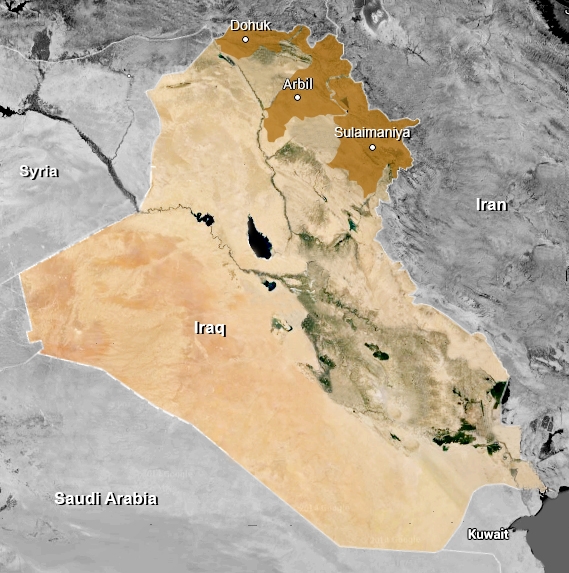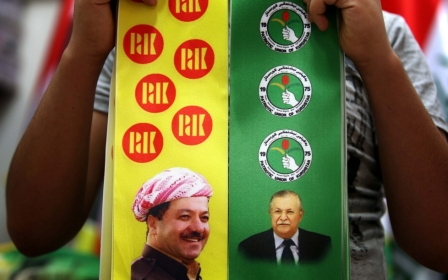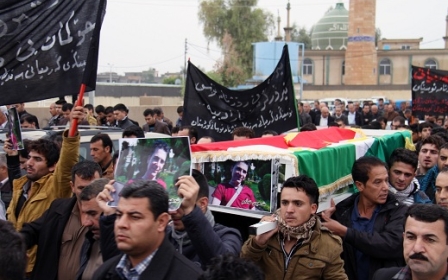Iraq Kurds seek to cling on to presidency

Iraqi Kurds have a "right" to the federal presidency, the country's autonomous Kurdish region said on Sunday, signalling the start of public jockeying for positions following parliamentary polls.
President Jalal Talabani, a Kurd, has held the position since 2006, but his term is at an end, leaving the question of who will succeed him in doubt.
In recent years, a de facto agreement has emerged whereby the president has been a Kurd, the premier a Shiite Arab and the speaker of parliament a Sunni Arab.
Results of last week's Iraqi elections are expected to be announced within the next 10 days.
The federal presidency "is a right of the people of Kurdistan, and we affirm this right to the Kurdish people," the region's presidency said in an online statement.
Stay informed with MEE's newsletters
Sign up to get the latest alerts, insights and analysis, starting with Turkey Unpacked
Any nominee for the post, the statement said, must be approved by the Kurdish regional parliament - a demand almost certain to draw the ire of Arab politicians.
The claim over the post is seen by Kurds as an important symbol after decades of central government oppression before the US-led invasion of 2003.
It is also a link between their three-province autonomous region and Baghdad, which are at odds over various long-running disputes.
"The Kurds do not possess the fiscal structures necessary to raise enough capital to break free of the clutches of Baghdad, no matter how much they might wish to. But listening to Kurdish politicians you would think that their position was anything but weak," said Michael Stephens, Deputy Director of the Royal United Services Institute in Qatar.
However, there are some Kurdish voices that argue for dropping the presidency post in favour of something more influential.
"Iraq’s presidency which has been held by the Kurds for ten years must not be a major point in future negotiations. For the Kurds, that post seems to have run its course, especially since Jalal Talabani, the PUK leader who often acted as a pacifying figure, is no longer there to play that role," wrote Yerevan Saeed at the Kurdish media network Rudwa.net.
"The post can be exchanged for something more important to the Kurds, the Defense or Finance Ministry, for instance. The Kurds will also be wise to retain the Foreign Ministry that has been held by Hoshyar Zebari for a number of years," he added.
Meanwhile, the State of Law Coalition, led by incumbent Prime Minister Nouri al-Maliki, said Monday that there was no article in Iraq's constitution stipulating that the president of the country must be a Kurd.
"There's no article in the constitution saying that any of the country's leading positions must go to particular segments of society," Mohamed al-Sayhoud, former MP and leading coalition figure, told Anadolu Agency.
According to al-Sayhoud, who believes the post-invasion power-sharing system produced "many negatives," Iraq will enjoy a "new political reality" once the results of parliamentary polls – conducted last week – are announced.
The new premier is all but guaranteed to be drawn from Iraq's Shiite majority again following the April 30 election, but who will fill the other two positions is still undecided, with a Sunni Arab or a Kurd potential options for both.
Middle East Eye delivers independent and unrivalled coverage and analysis of the Middle East, North Africa and beyond. To learn more about republishing this content and the associated fees, please fill out this form. More about MEE can be found here.





